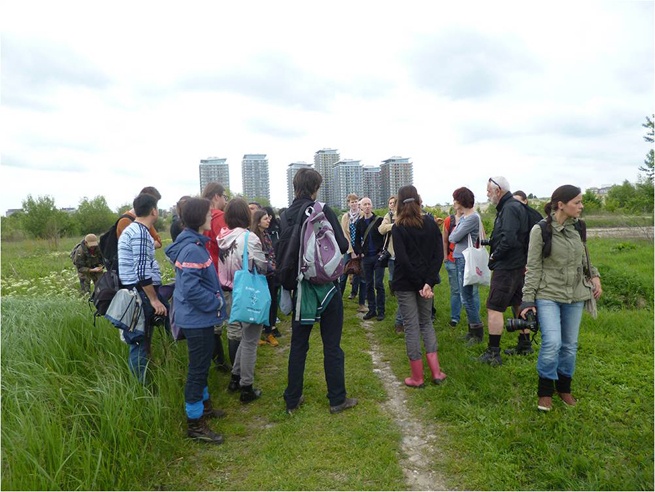Experimental Reading Room: Plant Liberation
18 Aug 2017
The Experimental Reading Room is a three-day participatory seminar space, led by The Translocal Institute for Contemporary Art. As part of In formation's orientation towards the future and new forms of commonality, the series aims to create a space to interact, experiment, learn and dream towards ecological awareness in contemporary art and society. The project is designed to engender the self-production of socially-embedded, theoretically-informed and practically-oriented knowledge.
The Experimental Reading Room treads between the global and the planetary, indigenous knowledge and scientific culture, multispecies and human solidarity. It is an invitation to immerse the mind in ecological thought, handle the critical tools of the environmental humanities, and encounter the responses of contemporary artists to climate change, species extinction and extractivist attitudes to the natural world. Based on close readings of vital texts, analysis of eco-centric art practices and experiential exchange, this collaborative activity focuses over three days on the interconnected themes of geoontology, de-extinction and plant liberation.
The focus of the final session of the Experimental Reading Room is on Plant Liberation: the upsurge in critical interest in plant theory, vegetal being and botanical politics. Artists have been at the forefront of attempts to consider what it would mean to extend human rights to the plant world, up to and including the cosmopolitical project to enact a planetary assembly encompassing human and non-human voices. Participants will also explore the practical implications of the notion of plant liberation for ecological activism in the face of the deforestation and degradation of the natural world.
The Translocal Institute for Contemporary Art is a centre for transnational research into East European art and ecology based in Budapest. It was founded by Drs Maja and Reuben Fowkes in 2013 and operates across the disciplinary boundaries of art history, contemporary art and ecological thought.
Dr Maja Fowkes is an art historian, curator and head of research at the Translocal Institute for Contemporary Art. She is the author of The Green Bloc: Neo-avant-garde Art and Ecology under Socialism (2015), a pioneering account that addresses how the natural environment figured in the practice of Eastern European artists around 1970. Her current research interests include the thematic exploration of issues in the emerging field of environmental arts and art history, developing new narratives of Central and Eastern European art history, as well as investigating aspects of performance art since the 1960s.
Dr Reuben Fowkes is an art historian, curator and director of the Translocal Institute for Contemporary Art. His collaborative work with Dr Maja Fowkes has focused on the theory and aesthetics of Eastern European art from the art production of the socialist era to contemporary artistic practices, while interests within the field of art and ecology have entailed investigations of environmental art history under socialism, visual cultures of the Anthropocene, the position of art within the environmental humanities, and the intersections of contemporary art with plants, animals, rewilding, the biosphere and beyond-human anthropology.



